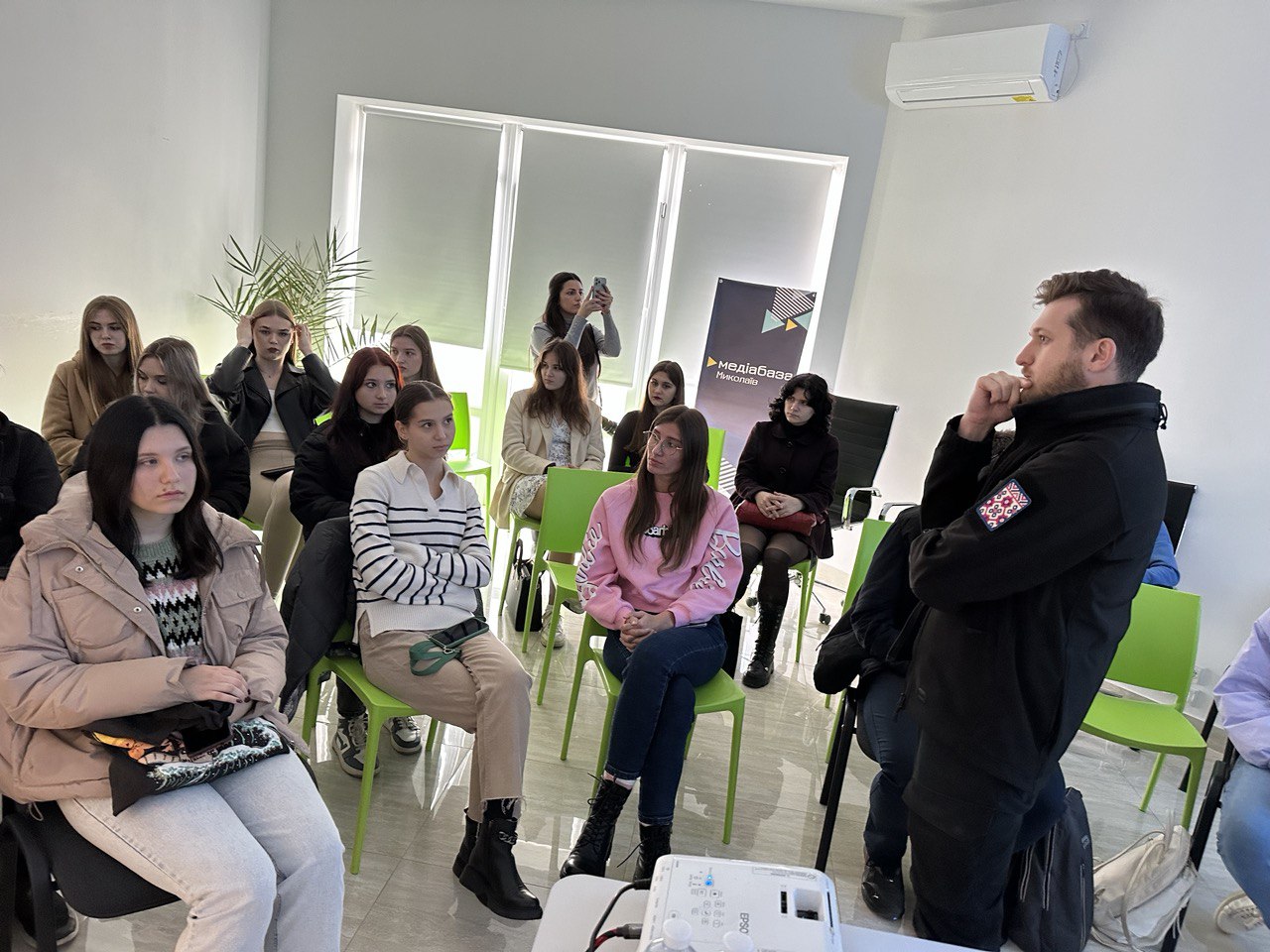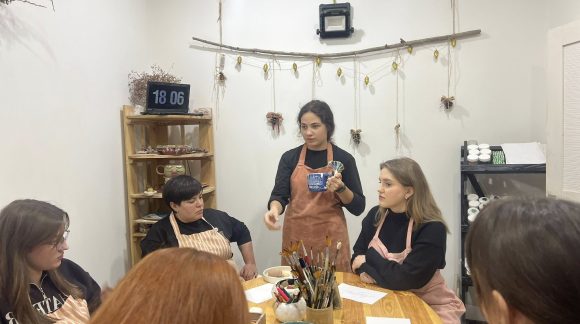Journalists Ivan Antypenko (Radio Liberty, “Grunt”) and Dmytro Sheremet (Radio Liberty, “Novyny Pryazovia”) spoke to journalism students about their experience reporting on the war and explained that it helps not to take it too close to heart so as not to “burn out”.
The discussion took place at the “Mediabaza.Mykolaiv” hub, where journalists and students talked about the work specifics and behavior of reporters working in the liberated territories, writes “Mediabaza.Mykolaiv“.
Both journalists are from Kherson oblast. Ivan Antypenko was one of the first reporters to arrive in the liberated Kherson, and Dmytro Sheremet regularly covers the issues in the liberated villages in Mykolaiv and Kherson oblasts.
The news about the liberation of the Right Bank from Russian troops came as a surprise for them, as well as for the whole country, and was hard to believe at first. They were among the first people who managed to get to the liberated towns, but not in their reporter capacity.

Photo – Mediabaza.Mykolaiv
“The euphoria lasted until November 22. It was quite difficult to get there, because everything was off limits, only soldiers and volunteers were allowed through. We tagged along with them and went there like Kherson locals. The reports I worked on when I came back home to the liberated land were personal to me. It’s not that I was exposing myself there, but I was wringing it out of myself as best as I could to create a connection”, said Ivan Antypenko.
At the same time, the journalists stressed how important it is to have an official permit to work in the de-occupied territory. But one should try and get it by any means, be it above board or not quite.
“It is better to film a report and release it. The fact that people live under shelling is nothing, you need to show how they live, because many people forget that there are towns that live under daily shelling,” said Dmytro Sheremet.
They said that an important aspect of working in the de-occupied territories is how densely they are mined, because mines and trip wires can be literally everywhere, even in abandoned houses.
“In the first months after the de-occupation were not only mines, trip wires, but the remains of the people who had occupied our land. Those who were hiding were caught in the bushes. This job is very high risk. And besides this danger, there are still people there who supported the Russians. So, you, as journalists, should filter the information as best you can and give an objective picture,” Sheremet added.

